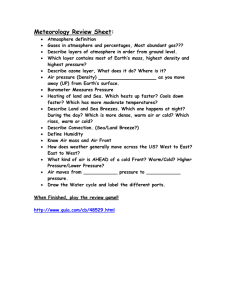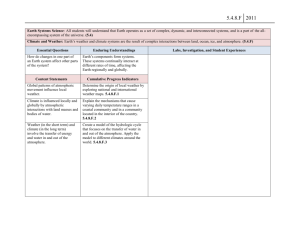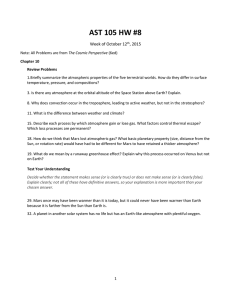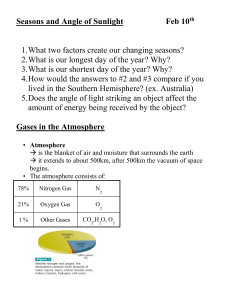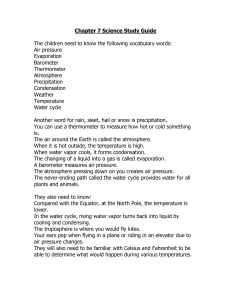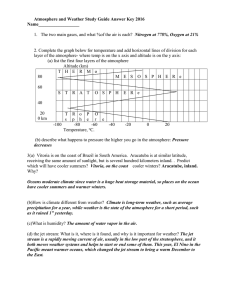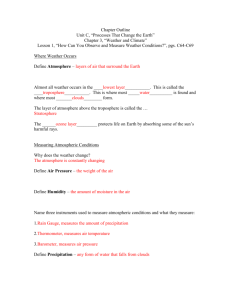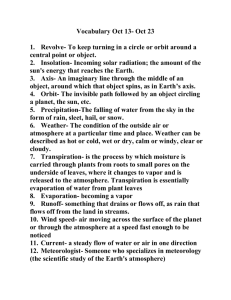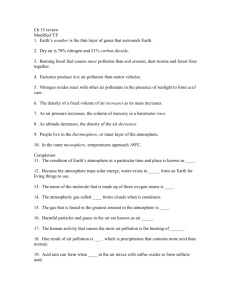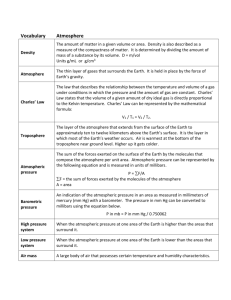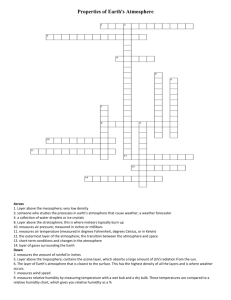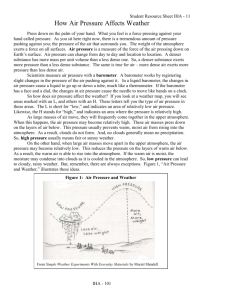7th Atmosphere Atmosphere Study Guide Words to Know Density
advertisement
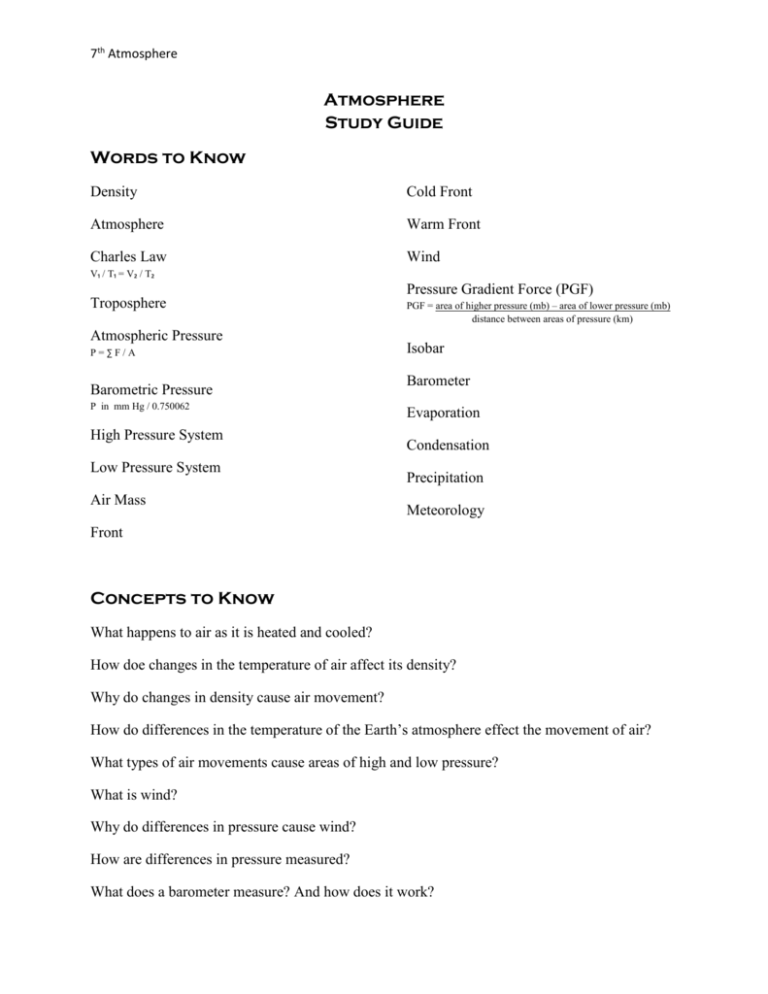
7th Atmosphere Atmosphere Study Guide Words to Know Density Cold Front Atmosphere Warm Front Charles Law Wind V₁ / T₁ = V₂ / T₂ Pressure Gradient Force (PGF) Troposphere Atmospheric Pressure P=∑F/A Barometric Pressure P in mm Hg / 0.750062 High Pressure System Low Pressure System Air Mass PGF = area of higher pressure (mb) – area of lower pressure (mb) distance between areas of pressure (km) Isobar Barometer Evaporation Condensation Precipitation Meteorology Front Concepts to Know What happens to air as it is heated and cooled? How doe changes in the temperature of air affect its density? Why do changes in density cause air movement? How do differences in the temperature of the Earth’s atmosphere effect the movement of air? What types of air movements cause areas of high and low pressure? What is wind? Why do differences in pressure cause wind? How are differences in pressure measured? What does a barometer measure? And how does it work? 7th Atmosphere What changes in temperature are necessary for precipitation to form along fronts? What changes in atmospheric pressure occur with the passing of a cold or warm front? As the distance from the Earth’s surface increases in the Troposphere the temperature decreases As the temp of gas increases gas’s volume increases- if the air cools its volume will decrease but its mass stays the same As air is heated its density decreases causing it to rise above cooler air Cooler air is denser than warm air Dense air causes an area of High Pressure on the earth’s surface Less dense air causes an area of Low Pressure As a front moves across an area atmospheric pressure will change Area of High pressure will flow into an area of lower pressure Pressure is measured in millibars (mb) What is an isobar? What is an isobar map? Levels of the Atmosphere Earth is tilted how many degrees? Elements in the atmosphere Charles’s Law- what does it describe? High Pressure causes what type of weather? Low pressure? What are the different types of Air Masses? And where are they formed? (Continental Artic, Continental Polar, etc.) What is the water cycle?
